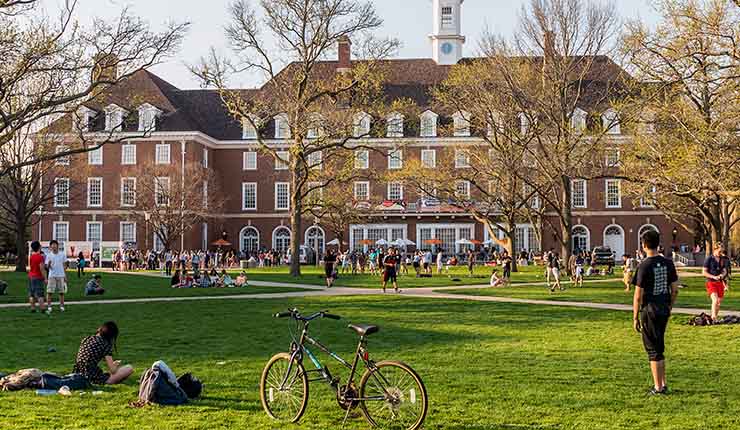When it comes to choosing the “best” university for higher education, the answer is rarely as straightforward as a simple ranking. Many prospective students—and their families—are drawn to the perennial lists of top universities, which often feature names like Harvard, Stanford, and Oxford. But the reality is that the “best” university is subjective, shaped by what you want to achieve in your education, your career, and your life. The true measure of a university’s worth goes far beyond its reputation or its position on a global ranking list. Let’s explore what really makes a university stand out in the realm of higher education.
Academic Excellence: It’s Not Just About Prestige
The first thing that comes to mind when people talk about top universities is usually academic reputation. While many of the usual suspects—Harvard, MIT, Cambridge—have earned their accolades due to years of groundbreaking research and elite faculty, the key question is: Does attending these institutions guarantee a better education?
Let’s be clear: A degree from a prestigious university does not automatically translate into superior learning or intellectual growth. The so-called “best” universities may provide access to more resources, a wider network, and recognition on paper, but they also come with an often overwhelming culture of competition and a certain degree of exclusivity. This can lead to an environment where some students feel less like learners and more like commodities.

For many students, particularly those seeking specialized knowledge or practical skills, smaller or less prestigious universities can be a much better fit. Consider universities like California Institute of the Arts (CalArts) for the creative fields, or the University of California, Berkeley, for its strong engineering and environmental science programs. These universities are highly respected in their respective fields but don’t always make the top ten lists of general rankings.
Moreover, some universities emphasize teaching over research, providing a more personal, intimate educational experience. Smaller liberal arts colleges, such as Williams College or Pomona College, prioritize close mentorship and personalized learning. In this context, a student’s relationship with professors and the depth of their academic engagement can be far more valuable than the prestige of the institution they attend.
Research and Innovation: Is Bigger Always Better?
When it comes to research, the largest universities tend to dominate the conversation. Universities like MIT, Stanford, and Harvard are often at the forefront of innovation and scientific advancement. They have the resources, funding, and a high concentration of leading experts in their fields, creating an ideal environment for groundbreaking discoveries.
However, the best university for higher education isn’t necessarily the one with the most famous lab or the biggest budget. In fact, innovation can thrive at institutions that are nimble and focused on specific areas of expertise. Schools like the University of Illinois at Urbana-Champaign and Georgia Tech have made massive strides in engineering and technology without the global name recognition of their larger counterparts. They’ve cultivated vibrant research ecosystems where students have more hands-on experience and opportunities to shape the future.
Furthermore, some students find themselves thriving in less traditional academic settings. Many top universities in Europe, such as ETH Zurich or the University of Amsterdam, offer highly competitive programs that foster innovation without the overwhelming pressures that come with a massive institutional profile. For many fields, it’s not about where you are—it’s about what you can contribute and the opportunities available for collaboration.
Campus Culture: Why It Matters More Than You Think
Let’s talk about campus culture. The most elite institutions in the world may offer unmatched access to global networks, but they often come with a set of expectations that might not align with every student’s personal goals or well-being. The intense pressure, wealth inequality, and exclusivity can create an atmosphere that, while intellectually stimulating, may be emotionally or socially isolating for some.
At the same time, a smaller, more diverse university can foster a campus environment that’s more conducive to personal growth and community building. Take, for example, institutions like Brown University or the University of Michigan, which have long been lauded for their inclusive, collaborative cultures. Here, the focus is on developing well-rounded individuals, not just producing future CEOs or researchers. Students are encouraged to take risks, pursue interdisciplinary projects, and challenge traditional norms.
In contrast, elite universities may focus so heavily on building an illustrious academic brand that students often feel like they are competing to climb a corporate ladder, rather than focusing on their passions or contributing to meaningful social change. If you value work-life balance, mental health, or the ability to explore interests outside of your major, these cultural factors can be just as crucial as the institution’s academic rigor.
The Bottom Line: The Best University for You
Ultimately, the “best” university is one that matches your personal, academic, and professional aspirations. It’s about finding the right fit, not just the most prestigious name. Do you want to work in a cutting-edge lab? Attend a top medical school? Explore an eclectic range of subjects? Or perhaps you want to attend a school that values creativity and innovation above all else?
There is no one-size-fits-all answer, and the rankings you see online should not be the sole determinant in your decision. Instead, consider factors such as the quality of faculty in your area of interest, the resources available to students (such as internships, mentorships, and research opportunities), and the overall ethos of the campus. Ask yourself: Where will I thrive? Where will I be challenged, but also supported?
In the end, higher education should be about more than just getting into a “prestigious” university. It’s about finding a place that will help you grow, challenge you, and prepare you for a future that aligns with your own goals and values. The best universities are those that equip students with not just a degree, but with the tools and mindset to contribute meaningfully to the world. And sometimes, that means looking beyond the rankings.